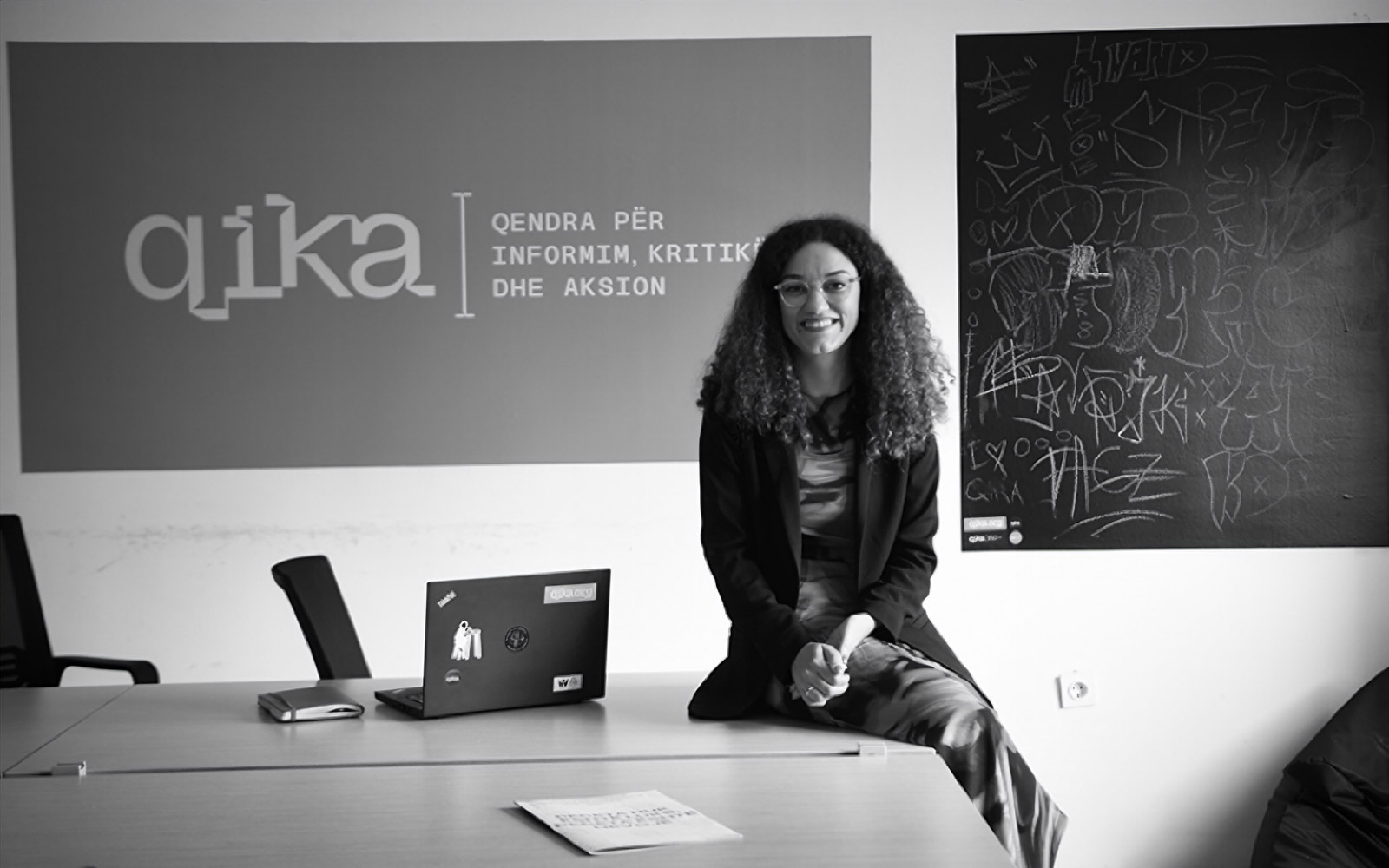
In the summer of 2020, when opportunities for in-person organising were scarce during the Covid-19 pandemic, Leonida Molliqaj decided to build an online media and activist space. An award-winning journalist with a focus on anti-corruption and social issues, Leonida wanted to use her academic background in gender studies to open, together with a group of fellow activists, a feminist web portal dedicated to younger generations.
“We wanted to shed light on the psychological effects of the pandemic on women; both on women who had become more isolated, and on those who were forced to do even more unpaid housework during the lock-down.”
The team wanted to focus on young people, from primary school to university. “They are at an age where they are undergoing an exploration of themselves and their identities, which sometimes clash with societal customs and traditions,” explains Leonida.
While on paper Kosovo’s laws on gender equality are in line with international standards, in practice opportunities for women are scarce in Kosovo*, with an employment rate for women of only 16.5 percent and a higher poverty rate than men. Traditional gender roles also mean that the burden of unpaid care work in the family falls on women’s shoulders, and sexual harassment is a widespread issue, relates Leonida.
In this challenging context for women, Leonida and her colleagues started Qendra për Informim, Kritikë dhe Aksion, (The Center for Information, Critique, and Action) or QIKA (“Girl” in Albanian) as an online website with articles tackling gender inequality in Kosovo, from unemployment and poverty to the right of women to their bodies. As a women-led platform giving a voice to women, QIKA stands out in Kosovo’s media landscape, which tends to be male-dominated.
“We often hear politicians talking about gender issues - particularly every year around 8 March. But we hear very little from women and girls themselves,” says Leonida, “and this is where QIKA comes in, offering them a place to express their concerns so they can become public."
They also publish online newspapers in pdf format: the first one, titled “Politics is a woman’s job”, analysed women’s participation in major political parties, the presence of women politicians in TV debates, and how the programmes of political parties planned to address gender inequality. Recently they also launched ‘QIKA on Screen’, the first feminist TV show in Kosovo.
Earlier this year, QIKA also launched 1≠1, a unique open data platform with visual explainers on domestic violence against women in Kosovo. The data is obtained through public institutions, which in turn receive daily reports from QIKA on the topic. “It is important for us to look at public policy from a feminist perspective, highlighting the consequences of specific policies on women and gender issues,” says Leonida.
QIKA’s online activities have proven very popular, with young girls from all over Kosovo resharing its posts on social media. But QIKA has also been successful with its in-person activities, with more than 70 young volunteers signed up through the “Join QIKA” online programme. Volunteers can contribute to the website as writers, translators, or video editors. They can host movie screenings and reading groups on feminist issues and organise street actions to raise awareness of gender inequality.
One of QIKA’s first street actions involved setting up a dining table in the street, to represent both the desire to get a seat at the table and women’s unpaid work in the household. “I’m glad when we get positive feedback about our actions,” says Leonida, “but we don’t do things just to get compliments: we want to provoke a bit, to rock the boat, to challenge perspectives and mindsets.”
QIKA is also devoted to fighting against menstrual poverty, and it has launched a campaign distributing pads and tampons in school, university campus and other public spaces in five different municipalities each year, with more than 45,000 menstrual products distributed so far.
They also launched an online petition to gather citizens' support for the removal of VAT tax on pads and tampons. The tax is now set at a whopping 18% as they are considered “luxury items”, which adds unnecessary strain to a woman’s finances, especially as many women are economically dependent on men. The petition garnered over 7,500 signatures and was accompanied by an awareness-raising video on the importance of removing the tax.
“This has been our most popular campaign with girls so far,” says Leonida, “it’s not just about fighting against menstrual poverty, but also to tackle the stigma that, to this day, is still associated with periods.”
One of the achievements that make Leonida proud is how QIKA has brought feminism closer to the wider public, especially young women, and changed the perception of feminist activism, emphasizing that it is important for everyone: “We did not bring feminism to Kosovo, there were many organisations before us. What we’ve done is create an umbrella infrastructure under which people can come, discuss their concerns, and find solutions together. When they see us carrying out street actions in traditionally male-dominated public spaces, young girls feel more comfortable and willing to express themselves.”
Leonida now plans to help activist groups develop also outside the capital Pristina. She’s very optimistic about the future of feminist actions in Kosovo: “We have this new generation of young feminists who advocate passionately for their rights. Their concerns are heartfelt, their struggles are more relatable - and this makes people sympathize with the cause. There have never been as many girls involved in public space as today.”
* This designation is without prejudice to positions on status, and is in line with UNSC 1244 and the ICJ Opinion on the Kosovo Declaration of Independence.
This article reflects the views of the grantees featured and does not necessarily represent the official opinion of the EED.
Picture credits: Samir Karahoda